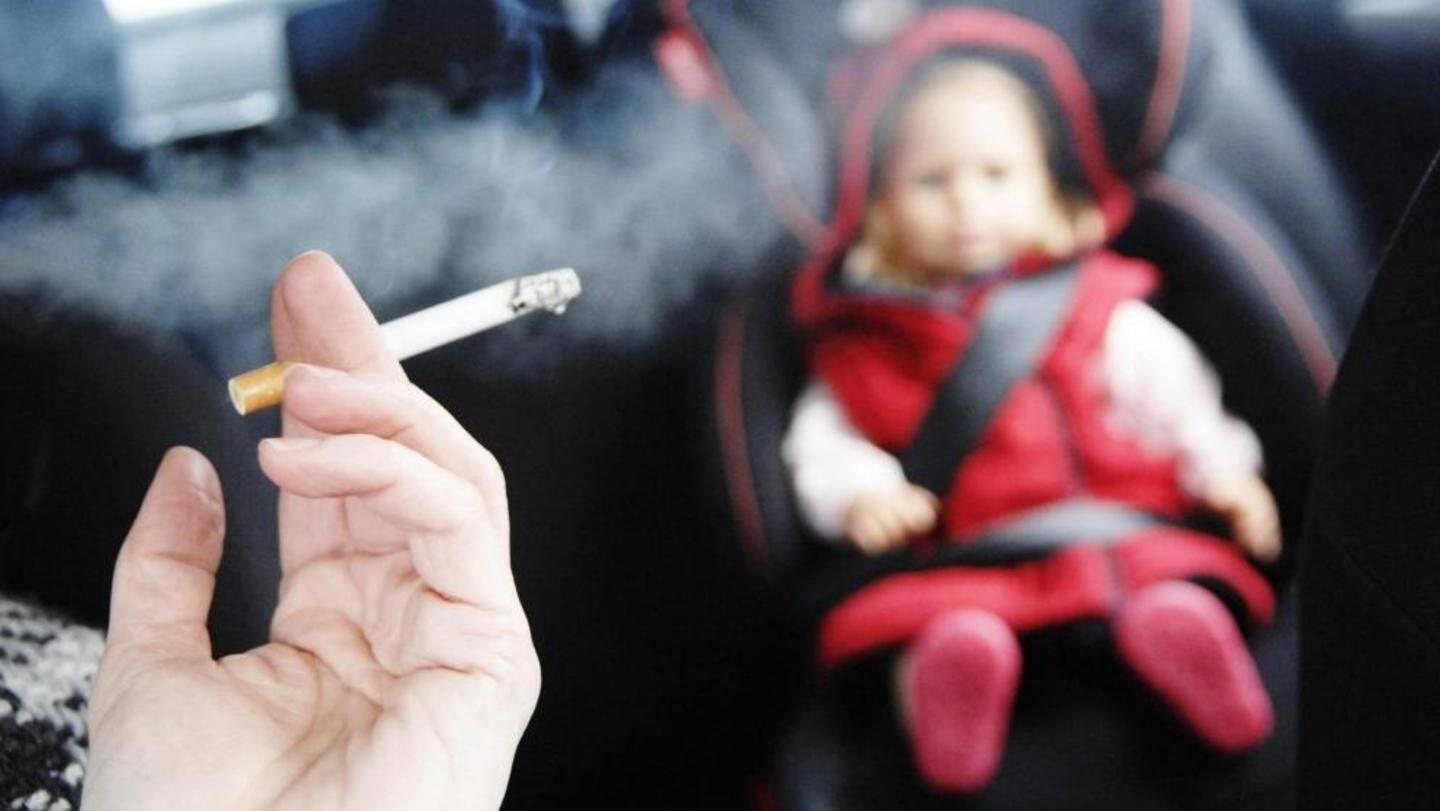
Exposed to passive cigarette smoking since childhood? Not good!
What's the story
For those kids who grew up with parents who smoked, there's bad news in store.
They stand a higher risk of dying from serious ailments like ischemic heart disease, chronic obstructive lung disease and stroke, than those whose parents were non-smokers, said a study conducted by American Cancer Society.
So, the best way to protect your children is to quit smoking altogether, it added.
Details
Risk increases if exposed to cigarette smoke for over 10hrs/week
In the study, 70,900 non-smoking participants were asked about cigarette-smoke exposure and their lives were tracked for 22 years.
It was found that if an adult is exposed to smoke for over 10 hours every week, chances of them dying from ischemic heart disease increases by 27%, while for stroke and chronic obstructive lung disease, the rise is by 23% and 42%, respectively.
Results
Even exposing to smoke during adulthood creates health complications
The researchers concluded that passive smoking during childhood was "likely to add seven deaths to every 100,000 non-smoking adults dying annually".
Not just childhood, if someone is exposed to a smoker during adulthood, there will still be health complications, the study said, which was published in the American Journal of Preventive Medicine.
Dr Nick Hopkinson of British Lung Foundation echoed the same.
Suggestions
'Protect your child, either smoke outside or quit altogether'
"We need to make sure that everyone, especially parents of young children and pregnant women who smoke, get the help they need to quit," said Hopkinson.
Campaigner of Action on Smoking and Health, Hazel Cheeseman offered one should smoke outside to protect children from harm or simply quit.
That's because children whose parents smoke have poor lung development and may have asthma, said Cheeseman.
Quote
'Study provides further evidence for reducing second-hand smoke exposure lifelong'
"This is the first study to identify an association between childhood exposure to second-hand smoke and death from chronic obstructive lung disease in middle-age and beyond. Our findings provide further evidence for reducing second-hand smoke exposure lifelong," said Dr Ryan Diver, one of the researchers.